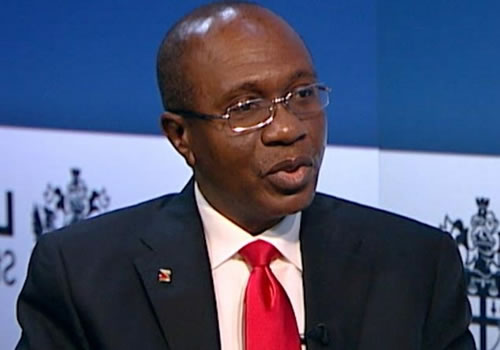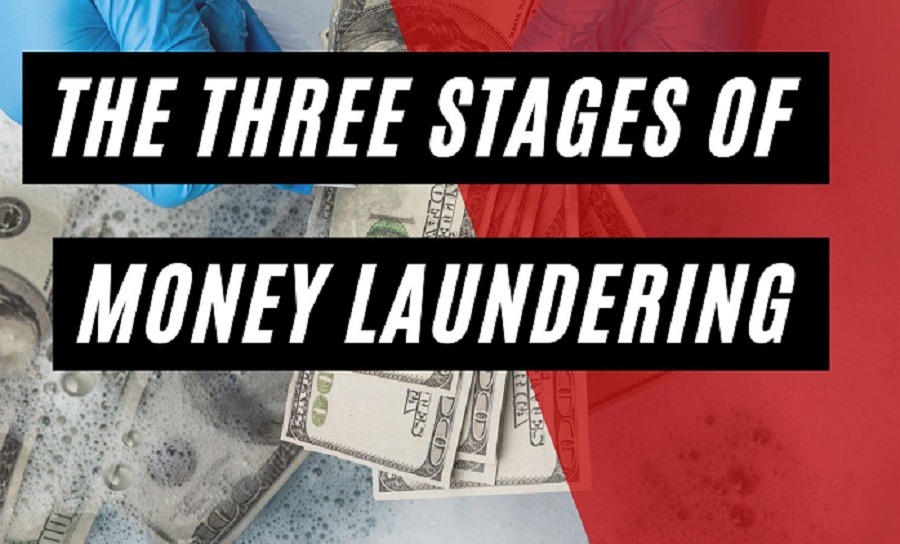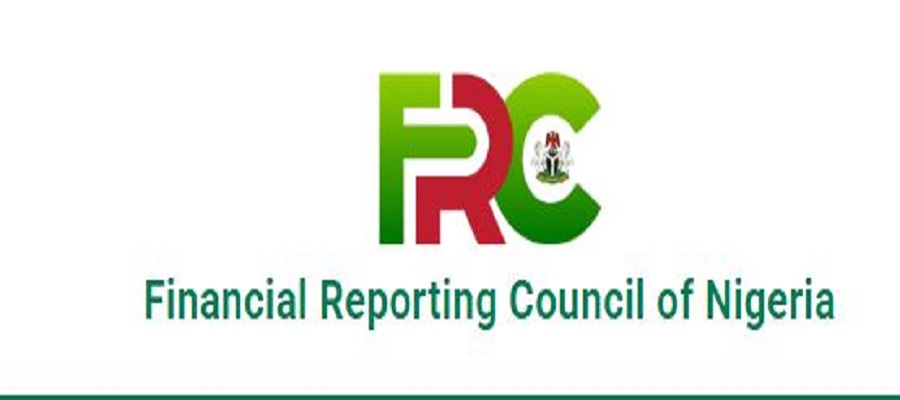General News
Nigeria Monetary Policy Makers in Tight Spot as Stagflation Takes Hold

Monetary policymakers are in a tough spot after COVID-19 claimed the economy as a victim of lockdowns and reduced activity. The central bank has to take on a therapeutic role to nurse the country back to health. Are the available remedies enough to save the patient or have decades of over-reliance on the cover-all solution of strong oil revenues blunted their effectiveness?
CBN unlikely to cut rates
In its January decision, the Central Bank of Nigeria (CBN) left its key interest rate unchanged at 11.5 percent, citing the pursuit of price stability. While other central banks adopted looser monetary policy to defend their economies against COVID-19, the CBN simply doesn’t have enough breathing room because it is dealing with stagflation marked by price inflation in the essential needs sector and a loss of productivity at the same time.
The CBN shows decisiveness and determination to reverse the stagflation and loss of output trends, according to its January meeting statement. Even amid the headwinds, it’s encouraging that the CBN realises the problem and is taking measures to handle it.
Nigeria faces severe stagflation
The economic consequences of COVID-19 are the environment of stagflation with rising inflation and a recessionary economy, said the CBN. Stagflation is characterised by price rises which occur when there is an increase in inflation and at the same time an increase in unemployment and lower economic output. Meanwhile, import restrictions announced by the central bank to help local producers have added to fuel inflation which hit a three-year high in December.
Traditional monetary policy is hard-pressed to find a solution to both stagflation and a depressed economy at the same time. Lowering interest rates is one option but in Nigeria’s case might lead to an increase in inflation which is well above the target rate of six to nine percent and make things worse.
The remedy for stagflation depends on treating the root causes. These are the extensive pandemic lockdowns, chronically high inflation, and uncertainties in the oil markets feeding into reduced output and fiscal risks. While most of the causes are likely to pass once the pandemic is under control, none of them appears to have an early ending at the time of writing. Vaccination programmes take time to be effective and meanwhile demand for oil remains at relatively low levels because of travel restrictions.
Economic recession
Nigeria struggles with a recession with the threat of higher unemployment and poverty rates exacerbated by the public health threat from COVID-19. The recession impacts the buying power of the Naira and comes at a bad time after the central bank’s efforts to manage the currency and stoke economic growth in recent years rather than just focusing on keeping inflation in its target band of six to nine percent.
Monetary authorities had to devalue the Naira twice last year after a shortage of dollars pushed up import prices and increased the gap between the official and black-market exchange rates.
Unconventional tools of growth
In January, the CBN disbursed N20 trillion to cushion the pandemic effects and support the signs of improvement which came thanks to easing lockdown restrictions and more promising Oil prices. The CBN said that N192.64 billion was disbursed to households and small businesses from the COVID-19 Targeted Credit Facility.
The deployment of funds directly to their targets is certainly a significant support for the economy but the second wave of infections and ongoing uncertainty about the vaccine rollout threatens to sabotage any meaningful recovery, at least in the short term.
Too early to tighten?
The coronavirus is the dovish factor in the CBN’s price stability mandate and the central bank is likely to adopt a wait-and-see approach for the foreseeable future. Tightening monetary policy this year may be too soon and make Nigeria an outlier among major economies expected to ease or hold rates at record lows to breathe new life into their economies.
Other than direct funding, the CBN may end up using additional unconventional tools to revive growth including tweaking the loan to deposit ratio, the liquidity ratio, and cash reserve ratio. The questions are whether these will be enough to save the patient from more financial pain and what will be the long-term effects on Nigeria’s economic health.
General News
NCS to Launch Electronic System for Cash Declarations at Airports

Nigeria Customs Service (NCS) is set to introduce an electronic declaration system to streamline and enhance compliance for travelers carrying cash into or out of Nigeria.

Speaking in an interview with the News Agency of Nigeria (NAN) in Abuja, Abdullahi Maiwada, NCS spokesperson, emphasized that the initiative aligns with efforts to strengthen Nigeria’s anti-money laundering framework and reinforce financial regulations.
“The Nigeria Customs Service (NCS) has announced the deployment of an Electronic-Currency (E-Currency) declaration form as part of its anti-money laundering measures for travelers carrying cash into and out of Nigeria,” NAN reported. The system will require travelers carrying amounts exceeding the legal threshold to declare them before arrival or departure.
Maiwada further explained the process, stating, “We have developed a system where, even before leaving your point of origin, you can scan a QR code, access the form, fill it out, and we will be able to see it from here.”
He noted that the initiative, set for rollout soon, will enhance monitoring and facilitate information sharing with relevant authorities.
Under the Anti-Money Laundering (Prevention and Prohibition) Act 2022 and the NCS Act 2023, travelers carrying over $10,000 (about N15.4 million) or its equivalent in negotiable instruments must declare the funds to Customs authorities.
To boost awareness, the NCS is working with airline operators to inform travelers through onboard announcements and plans to reinstate signage at airports and border points in English and French.
The move comes as part of broader efforts to tighten financial controls following a recent case at the Murtala Muhammed International Airport (MMIA), where Customs officials seized $578,000 from a passenger attempting to evade currency declaration regulations.
General News
Aquaterra Energy Secures Multi-million-dollar well Intervention Contract with Intrepid Energy in Nigeria

Aquaterra Energy, a leader in offshore engineering solutions, has secured a multi-million-dollar, multi-year contract with Intrepid Energy Limited (IEL) to deliver a bespoke subsea well intervention equipment package for a project in Nigeria.

Aquaterra Energy’s turnkey well access package will enable IEL to conduct intervention operations across multiple mature oil wells in the region, supporting enhanced reservoir production.
The contract includes the supply of a complete seabed-to-surface intervention system and package, spanning from the subsea tree to surface intervention equipment.
Key components include Aquaterra Energy’s TRT tieback tooling, which provides production bore and annular access, a lightweight well pressure control system, and an ISO 13628-7 qualified open water intervention riser with an integrated tensioning system. In addition to equipment provision, Aquaterra Energy will also deliver ongoing offshore engineering support throughout the project.
The 7- 3/8” lightweight well access solution, has been specifically engineered for deployment from jack-ups and lift boats. This innovative approach offers a cost-effective and operationally efficient alternative to floating vessels, reducing intervention costs while maintaining high safety and performance standards.
Andrew McDowell, Delivery Director at Aquaterra Energy comments: “Our expertise in offshore engineering allows us to develop tailored intervention solutions that address the operational challenges of subsea well access.
This system has been engineered for efficiency, ease of deployment, and safety, helping IEL optimise intervention activities across Nigeria while reducing costs. By delivering a complete, integrated package, we are simplifying complex operations and enabling operators to maximise production potential.”
Engr Seun Alonge, CEO at Intrepid Energy Limited adds: “Working with Aquaterra Energy marks a significant step forward for our intervention operations in Nigeria. Their specialised technology enhances our ability to execute intervention programmes efficiently, maximising performance across our assets.
By combining Aquaterra’s technical expertise with our deep understanding of the local operating environment, we’re confident this collaboration will enhance production outcomes and create lasting value for our operations in the region.”
The project is set to support intervention operations over multiple years, with Aquaterra Energy providing ongoing technical expertise, with a dedicated team of engineers providing ongoing service support throughout the project.
George Morrison, CEO at Aquaterra Energy: “Delivering reliable and efficient well access solutions for shallow water subsea operations is central to how we support offshore operators.
This collaboration with IEL reinforces our commitment to providing cutting-edge engineering solutions that enhance efficiency and reduce operational costs. With West Africa playing an important role in the global energy sector, we’re proud to continue supporting its offshore industry with our expertise and innovative technologies.”
General News
FG Halts Controversial FRC Dues amid Industry Outcry

Federal government has temporarily suspended the controversial annual dues imposed on public interest enterprises by the Financial Reporting Council (FRC) after fierce opposition from businesses.

Jumoke Oduwole, minister, Industry, Trade, and Investment, announced the decision during a Ministerial Consultative Meeting in Abuja on Wednesday.
The move follows mounting pressure from private sector groups, including the Nigeria Employers’ Consultative Association (NECA) and the Manufacturers Association of Nigeria (MAN), who slammed the Financial Reporting Council (Amendment) Act 2023 for burdening companies with excessive fees.
The Act mandates cumulative annual charges for non-listed entities and imposes a harsh 10% monthly penalty on unpaid dues, compounding until full payment, a provision that sparked widespread backlash.
At the meeting, major industry players like NECA, MAN, the Nigerian Association of Chambers of Commerce (NACCIMA), oil producers, and telecom operators warned that the fees would cripple businesses already struggling in a tough economy.
Oduwole clarified the suspension, stating, “The government has decided to direct the Financial Reporting Council to pause in the implementation of the new annual dues. You know that I am a lawyer, and a suspension request by the organised private sector would be in contravention of legislation duly passed by the National Assembly. A pause is an administrative process simply to review, in line with what we discussed today.”
She assured stakeholders that the halt would last no longer than 60 days, with a technical working group—including FRC officials and private sector representatives—set up to reassess the policy.
“We are a listening administration. The private sector has requested a range from three months to an indefinite suspension. We are not going to do that. So, at the most, 60 days is in my estimate. We are going to set up a technical working group comprised of the FRC and the organised private sector who have formally written in, and this will be reviewed,” Oduwole emphasized.

 News3 days ago
News3 days agoCourt Throws Out Falana’s Fraud Case against Ekeh, Zinox Boss and Others

 E-Financial3 days ago
E-Financial3 days agoHeritage Bank Depositors Seek National Assembly’s Help to Recover Trapped Funds

 Telecom2 days ago
Telecom2 days agoAgain, Labour Fumes, Threatens Shutdown of Telcos over Non-Implementation of 15 Percent Tariff Reduction

 Telecom3 days ago
Telecom3 days agoNokia Unwraps 5G Gateway for Home Internet

 News3 days ago
News3 days agoFG to Halt Solar Panel Imports, Pushes for Local Manufacturing

 News3 days ago
News3 days agoFG Receives N1Bn Grant from Airtel Africa to Boost 3MTT Programme

 E-Business2 days ago
E-Business2 days agoQNET Disassociates From Fraudulent Academy in Abuja, Supports EFCC Arrest

 News2 days ago
News2 days agoNNPC Ready to Go to Capital Market for IPO- CFIO























